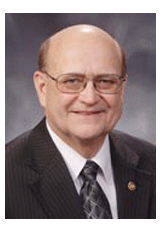As summer winds down and we slowly ease into fall, it is a perfect time to ensure that the most valued and treasured people in our lives are protected and that we are prepared for whatever life may hand us.
September is “National Preparedness Month.” For 11 years, the Federal Emergency Management Agency and the Department of Homeland Security have sponsored this educational month, hoping to prepare the public about how to handle natural disasters, terrorist attacks or other emergencies.
For families, one of the most important, and yet overlooked steps is to make a family communication plan. Make sure everyone in the home knows the plan. Some simple tips from the Centers for Disease Control and Prevention include making sure everyone with access to a cellular phone knows how to and can text. In many emergencies, texting has proven to be an easier and more reliable way to communicate than actually speaking to a person as phone lines become overloaded. Also make sure everyone knows an out-of-town family member they can reach out to in case of emergency. This person should know they’re the emergency contact for your whole family and should also be the same person that each affected family member is told to call. Make sure the emergency contact has contact information for each member of your household and also knows your overall emergency plan.It is also a good idea to give each person a contact card. This will give them one piece of paper to carry that will have some of the most important contact information a family can have when and if they become separated.
Making sure a plan is in place for any type of disaster is vital. You would not have the same plan to escape a fire as you would to shelter yourself from a tornado. Make sure young children especially know the plans. Go over escape routes with them multiple times a year, and more frequently if you must change the plan for some reason. While we assume our family will recognize our communities warning sirens, some may not know how each different siren sounds. Make sure that everyone does. Also make sure that any emergency supplies you keep on hand have not expired. Check the dates on food and any stored medication annually.
Some things can be done by adults only, but will ensure families are protected. Make sure to have adequate insurance on your home. Flood insurance does not only protect from natural disasters but floods inside your home from broken pipes and more. Install smoke and carbon monoxide detectors and check the batteries in fall and spring each year—it is easiest to coordinate this with Daylight Saving Time. It is also best practices to have at least one person in the home familiar with how to do CPR. More than one person should know the medication and or needs of any person in the home who takes medicine on a regular basis or is under the supervision of a physician.
While we each pray that we are never faced with having to use out our emergency kits, it does ease your mind to have one ready. After all, being prepared is another way of putting your family first.
Always feel free to contact me throughout the year with any comments, questions, or issues by calling my office at (573) 751-5713 or by visiting my website at www.senate.mo.gov/brown.
Thank you for reading this and for your participation in state government.
|



